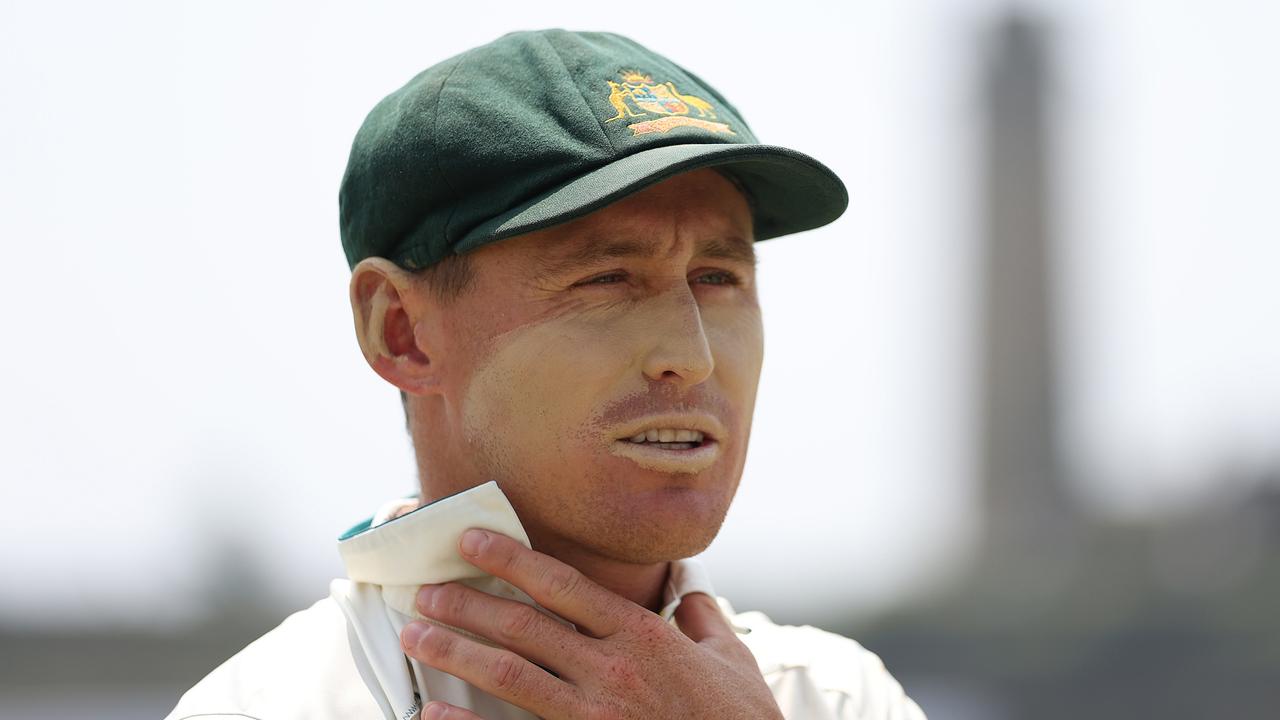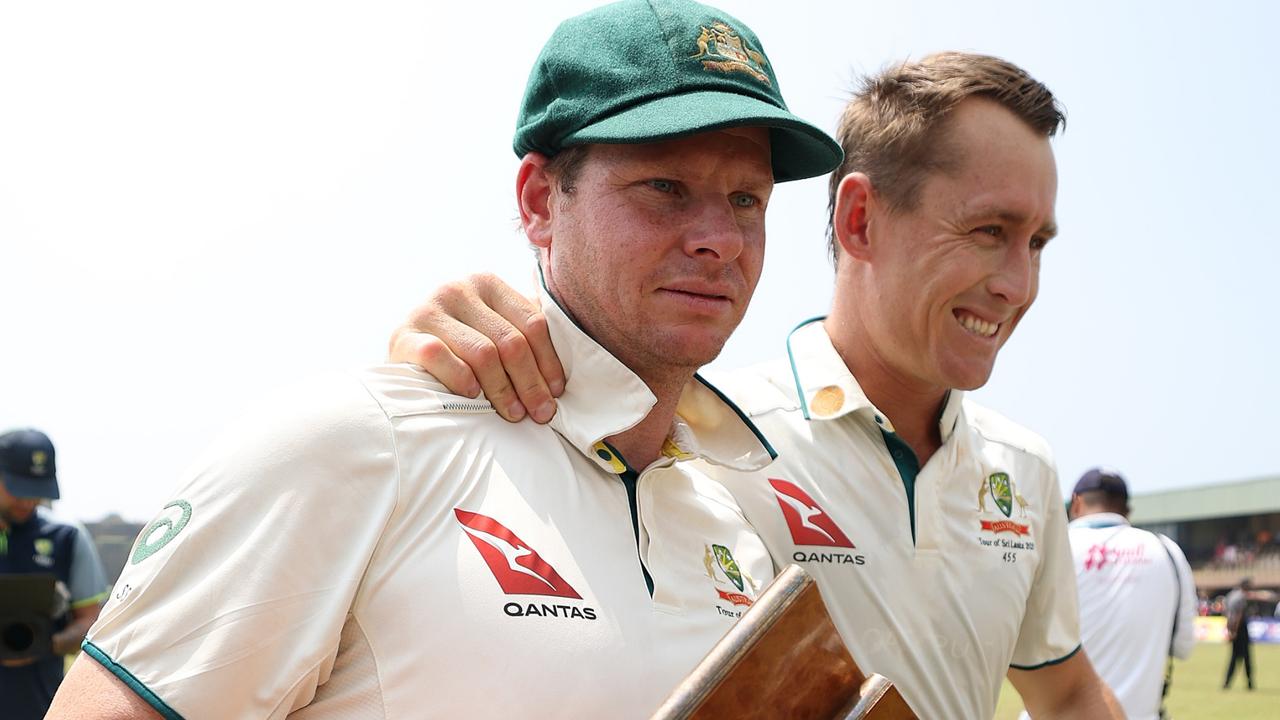Head for great heights as Travis hits England’s Ashes hopes for six
Travis Head was the last man picked for Australia, but he was the first to reach three figures and also the first batter to score a century in a single session at the Gabba.
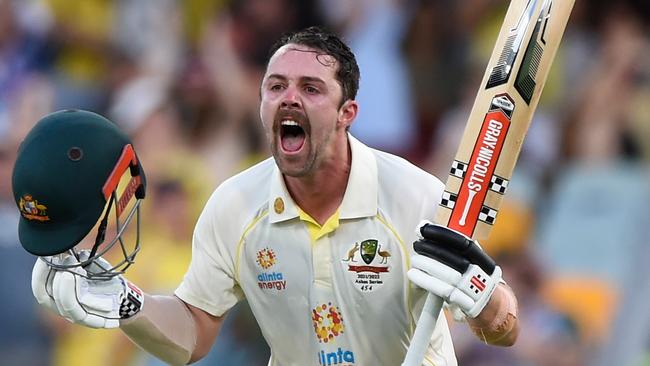
Travis Head was the last man picked for the Australian side playing the first Ashes Test, but he was the first in it to reach three figures and also the first batter to score a century in a single session at the Gabba.
The South Australian needed just 85 deliveries to get to 100 runs, and in doing so he has given the Australians a commanding lead going into the third day.
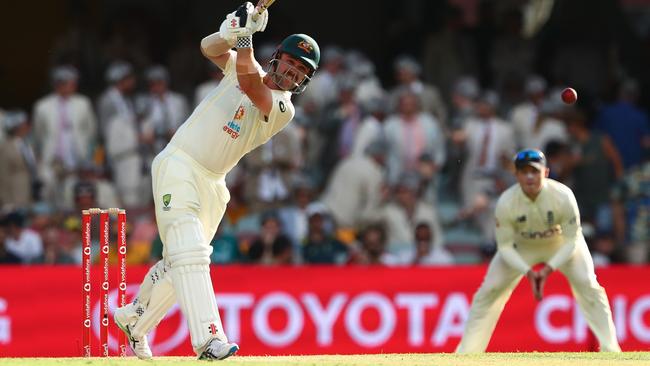
Australia is 7-343 with three days to play and England looks to have problems, with its best bowler, Ollie Robinson, off the field for a long time late in the day.
Head, 27, went at a pace that was reminiscent of Adam Gilchrist or a young David Warner. A couple of cut shots brought back memories of his beloved state teammate Phil Hughes.
“I’m still pinching myself,” Head said after play. “I still can’t quite work out what transpired the last couple of hours.”
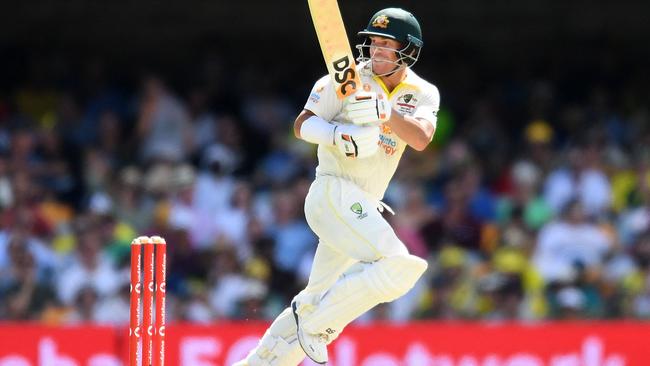
Head was lucky to escape unscathed from a full toss late in the day that deflected from his gloves into his chin. “I saw it pretty much the whole way,” he said. “I was lucky I got a bit of a hand on it. I was a bit surprised, if anything.”
Warner was robbed of his 25th Test century when he was caught on 94 just after the tea break. The star of the T20 World Cup has played just two Tests in the best part of two years and was lucky to get as far as he did.
The 35-year-old was bowled off a no-ball on 17, dropped on 48 and should have been run out when he was on 60.
When Ben Stokes bowled the opener in the first session, Warner looked up and said “good ball” but the third umpire was not of the same opinion.
Stokes had overstepped the crease by a long way and broadcasters discovered he had done it in the three previous deliveries without punishment and at least a dozen times on the day.
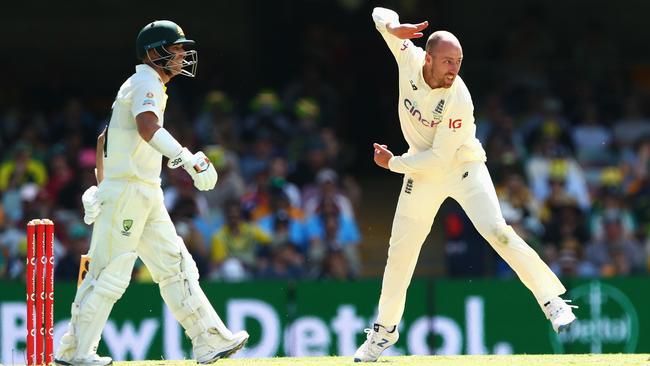
In the modern game, umpires have been relieved of the task of watching for no balls and replaced by technology.
Officials claimed later that the machinery had broken down and they were able to check for foot faults only after wickets.
It was too late for Stokes, however, who could have adjusted his run-up had he been aware.

